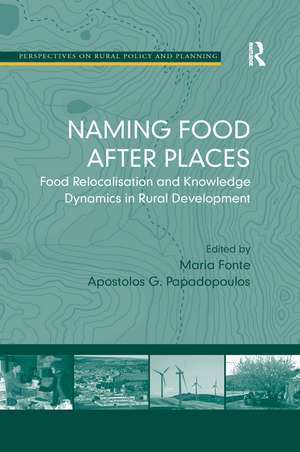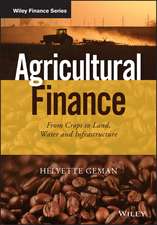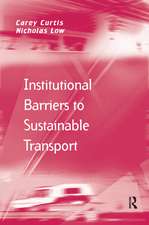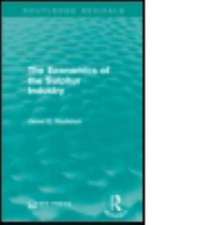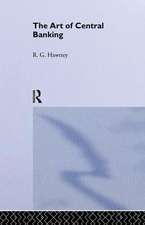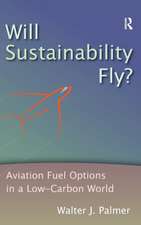Naming Food After Places: Food Relocalisation and Knowledge Dynamics in Rural Development
Editat de Apostolos G. Papadopoulos, Maria Fonteen Limba Engleză Paperback – 30 noi 2016
| Toate formatele și edițiile | Preț | Express |
|---|---|---|
| Paperback (1) | 435.39 lei 6-8 săpt. | |
| Taylor & Francis – 30 noi 2016 | 435.39 lei 6-8 săpt. | |
| Hardback (1) | 1054.71 lei 6-8 săpt. | |
| Taylor & Francis – 10 noi 2010 | 1054.71 lei 6-8 săpt. |
Preț: 435.39 lei
Nou
Puncte Express: 653
Preț estimativ în valută:
83.31€ • 87.30$ • 68.87£
83.31€ • 87.30$ • 68.87£
Carte tipărită la comandă
Livrare economică 11-25 aprilie
Preluare comenzi: 021 569.72.76
Specificații
ISBN-13: 9781138257740
ISBN-10: 1138257745
Pagini: 306
Dimensiuni: 156 x 234 mm
Greutate: 0.44 kg
Ediția:1
Editura: Taylor & Francis
Colecția Routledge
Locul publicării:Oxford, United Kingdom
ISBN-10: 1138257745
Pagini: 306
Dimensiuni: 156 x 234 mm
Greutate: 0.44 kg
Ediția:1
Editura: Taylor & Francis
Colecția Routledge
Locul publicării:Oxford, United Kingdom
Cuprins
Contents: Introduction: food relocalisation and knowledge dynamics for sustainability in rural areas, Maria Fonte; Part I Reinventing Local Food and Local Knowledge: 'Local food' as a contested concept: networks, knowledges, nature and power in food-based strategies for rural development, Hilary Tovey; Creating a tradition that we never had: local food and local knowledge in Northeast Germany, Rosemary Siebert and Lutz Laschewski; The reconstruction of local food knowledge in the Isle of Skye, Scotland, Lorna Dargan and Edmund Harris; Local food production in Sweden: the Eldrimner national resource centre for small-scale food production and refining, Karl Bruckmeier. Part II Valorising Local Food and Local Knowledge: From local to the global: knowledge dynamics and economic restructuring of local food, Isabel Rodrigo and José Ferragolo da Veiga; The construction of origin certification: knowledge and local food, Maria Fonte; One tradition, many recipes: social networks and local food - the Oscypek cheese case, Tomasz Adamski and Krzysztof Gorlach; Traditional food as a strategy in regional development: the need for knowledge diversity, Gunn-Turid Kvam; Traditional and artisanal versus expert and managerial knowledge: dissecting two local food networks in Valencia, Spain, Almudena Buciega Arévalo, Javier Esparcia Pérez and Vicente Ferrer San Antonio; Reclaiming local food production and the local-expert knowledge nexus in two wine producing areas in Greece, Apostolos G. Papdopoulos; Conclusion: Europe's integration in the diversities of local food and local knowledge, Maria Fonte; Index.
Notă biografică
Maria Fonte is Associate Professor in the Department of Economics at the University of Naples Federico II, Italy and Apostolos G. Papadopoulos is Associate Professor in the Department of Geography at the Harokopio University of Athens, Greece
Recenzii
'The book is one of the most succesful attempts of the last years to highlight the relevance of local resources to strategies of sustainable rural development for Europe. While it provides a sound and innovative theoretical framework, the book shows an impressive amount of empirical evidence, covering countries and regions often neglected in the international literature.' Gianluca Brunori, University of Pisa, Italy 'Naming Food After Places has two main strengths. First, intrinsically important case studies are brought together within an integrated framework and a common set of questions. Second, each of the local food initiatives is contextualized by reference to history, the current institutional-economic framework, and the specific agroecology of the region. Selections from the book may be assigned for courses in the sociology of agriculture, food, and science to think through the smaller and bigger questions that concern students of food and rural development.' Gastronomica
Descriere
Bringing together a range of case studies from Ireland, Scotland, Sweden, Germany, Norway, Poland, Italy, Portugal, Spain, and Greece, this book compares and contrasts different models of food re-localization. It examines, from the perspective of all actors involved, how networks are built, what the vulnerabilities are, and the sustainability of rural development.
